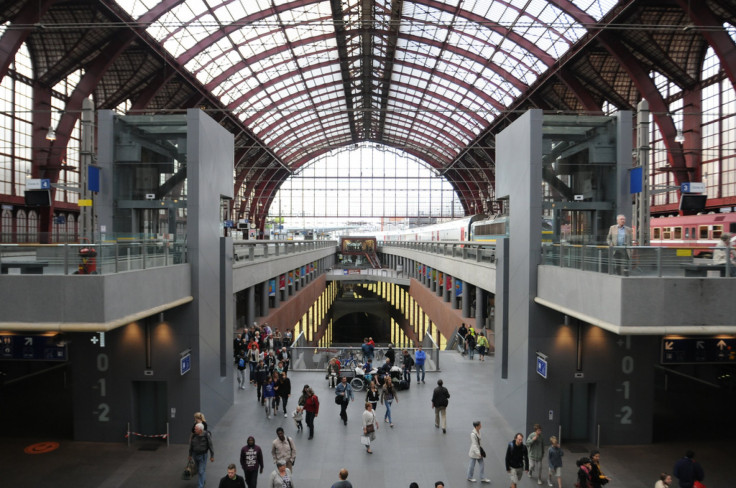Trains Grind To A Halt In Belgium As Unions Strike

The normally tranquil country of Belgium went off the rails on Wednesday -- literally.
The capital city of Brussels is home to the headquarters of the European Union and the North Atlantic Treaty Organization. But diplomats, eurocrats and ordinary citizens alike were forced to drive, walk, bike or take the bus to work after train traffic rolled to a stop this week.
Belgian rail workers began a 24-hour strike at 8 p.m. GMT on Tuesday, causing serious traffic jams during Wednesday’s morning rush hour. Even Eurostar and Thalys canceled their international service to London and Paris.
“In Brussels, the strike is a success, around 80-90 percent of the people are on strike,” said union member Philippe Peers to the Associated Press. “Many of the stewards as well are on strike, so I can tell that there will be not a single train in Brussels.”
Belgium’s rail system is vast, so the tens of thousands of people who relied on trains to commute every day were forced to find alternate means of transportation. Wednesday morning was difficult, but not impossible since the strike had been announced a week earlier.
Train service is expected to resume by Thursday morning.
The strike was instigated by socialist trade unions seeking fairer treatment from Belgium’s railway employers.
Rail transportation in Belgium used to be run by a state-owned company called SNCB, but has been managed by three separate entities since 2005. Striking workers want to revert to a simpler ownership scheme to minimize what they see as endemic mismanagement.
They are also protesting hiring cutbacks that have left 37,000 people to do the work that 65,000 people did 20 years ago.
© Copyright IBTimes 2024. All rights reserved.












